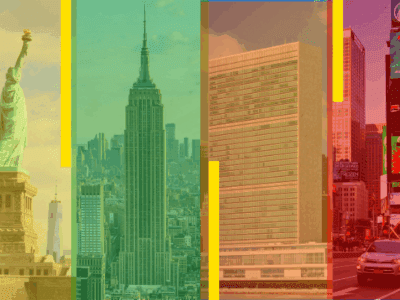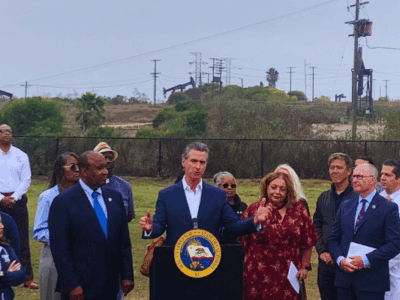Not Working on the Railroad
 Thies, where I was staying on my American Jewish World Service delegation trip to Senegal, is about 36 miles from the Senegalese capital, Dakar. That might not seem like a lot, but with typical Global South infrastructure, it is: often it can take more than 2 hours to get from one place to another. Plodding along in traffic, I couldn’t help wondering where the rail is.
Thies, where I was staying on my American Jewish World Service delegation trip to Senegal, is about 36 miles from the Senegalese capital, Dakar. That might not seem like a lot, but with typical Global South infrastructure, it is: often it can take more than 2 hours to get from one place to another. Plodding along in traffic, I couldn’t help wondering where the rail is.
If that seems like the fantasy of a coddled American, then think again. The old railway from Dakar to Bamako, now the capital of Mali, was the backbone of the French colonial transportation network. A strike by Black workers in 1947-48, who were confined to the worst jobs and unfair wages, was one of the seminal events in west Africa’s struggle for independence, and later immortalized in Sembene Ousmane’s classic novel, God’s Bits of Wood. So what happened to it?
Things Fall Apart
in postcolonial Africa, and the railway is no exception: everyone told me that the only people who take it now are those who don’t have the money even for a bus ticket. Why? The rolling and rail stock are so decrepit that it may take several days to get to Bamako. There’s just no point.
It’s not hard to see the environmental implications of this. Unable to get to Dakar by rail, people will continue crowding onto the highway or filling up Dakar’s slums. And the absence of infrastructure will basically ensure that economic development takes place in the capital: no one will be able to get their products to market. That means more urbanization, and more desertification.
And no: building more highways can’t get you out of this. Anthony Downs noted several years ago that once traffic gets saturated, it can’t be de-saturated: the only solution is to “buy a comfortable car and commute with someone who is attractive. Then regard the moments spent stuck in traffic simply as an addition to leisure time.”
There is a crucial economic development benefit to building the railway. As Paul Collier has proved in his superb book, The Bottom Billion, one leading cause of extreme poverty in the Global South is that a country is landlocked, so it can’t compete efficiently. Not surprisingly, many of the world’s poorest countries — Zambia, Central African Republic, Laos, Bolivia, Niger, and, of course, Mali — are landlocked. Switzerland, of course, is the counterexample, but that is because its neighbors have excellent infrastructure: if you doubt me, trying taking a ride on the French TGV. Senegal’s railway development isn’t just beneficial for itself, then: it is crucial for its extremely poor neighbor.
But such a positive externality may be one reason why it isn’t getting built. It’s going to require some strong international and regional leadership to get this done. Which is why I’m not holding my breath.








Reader Comments